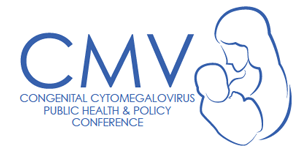Abstract Details
9/25/2018 | 2:00 PM - 2:30 PM | Diamond Ballroom I
Vestibular and Balance Disorders in Children with Asymptomatic Congenital Cytomegalovirus Infection
Background/objective: Congenital cytomegalovirus infection (cCMV) is a leading cause of sensorineural hearing loss (SNHL) and developmental disabilities in children worldwide. This study was undertaken to define frequency and severity of vestibular and balance disorders in children with asymptomatic cCMV.
Design/Methods: Children with asymptomatic cCMV identified on newborn CMV screening were enrolled. A comprehensive evaluation of vestibular function was carried out including rotational testing (horizontal canal), subjective visual vertical (utricle), and cervical vestibular evoked myogenic potential (C-VEMP: saccule), and oculomotor testing in a rotary chair using videonystagmography. Results for each variable were compared to age-matched normative data.
Findings: Study subjects included 32 children with asymptomatic cCMV. The mean age at testing was 7.56 ± 1.2 years and half were female. Six children had SNHL ranging from mild to profound loss including one child with bilateral loss. None of the children had significant neurodevelopmental delays. Evidence of peripheral vestibular dysfunction was observed in 50% of children as measured by rotary chair or C-VEMP. Interestingly, most children (90%) had difficulty with visual effectiveness for postural control and 69% had difficulty using somatosensory information for postural control and 41% had difficulty using vestibular information for postural control. An abnormal dynamic visual acuity score (DVA) was observed in 50% of study children. Vestibular dysfunction was observed in 4/6 children with SNHL and 12/26 with normal hearing (p=0.6).
Conclusions: A high proportion (50%) of children with asymptomatic cCMV had evidence of peripheral vestibular dysfunction affecting balance and gaze stability which could significantly affect participation in sports and potentially impact learning. These findings suggest that children with asymptomatic cCMV should be assessed for peripheral vestibular and balance disorders so that intervention (e.g. physical therapy) can be considered to improve postural control, gaze stability, and motor development.
- Understand how to test for vestibular and balance disorders in children
- Know the frequency and severity of various abnormal vestibular and balance testing measures in children with asymptomatic congenital CMV infection
- Learn the importance of screening children with congenital CMV infection for vestibular hypofunction and balance disorders and developing interventions to ameliorate the impact of these disorders on overall neurodevelopmental status
Presentation:
17739_9644JenniferChristy.pdf
Handouts:
No handouts have been uploaded.
Jennifer Christy (Co-Presenter), jbraswel@uab.edu;
Jennifer Christy is a clinical researcher and pediatric physical therapist who specialized in evaluation and treatment of vestibular impairments in children. She has over 15 years of clinical experience and 13 years of experience in clinical research in the area of vestibular rehabilitation. She is currently the co-director of the Vestibular and Oculomotor Research Laboratory at UAB and is highly experienced in testing for vestibular function and postural control for children with congenital CMV. Her past research includes validating clinical tests of vestibular function for children with severe to profound sensorineural hearing loss and designing pilot interventions to improve balance and gaze stability in this population. She is interested in determining the extent of vestibular hypofunction and balance impairment in children with congenital CMV so that studies can be designed to determine the optimal active agents and dose of vestibular balance therapy.
|
ASHA DISCLOSURE: Financial - Nonfinancial - |
|
AAA DISCLOSURE: Financial - No relevant financial relationship exists. |
Anwar Almutairi (Co-Presenter), aba7@uab.edu;
n/a
|
ASHA DISCLOSURE: Financial - No relevant financial relationship exists. Nonfinancial - No relevant nonfinancial relationship exists. |
|
AAA DISCLOSURE: Financial - No relevant financial relationship exists. |
Karen B. Fowler (Co-Presenter), kfowler@uab.edu;
Dr. Fowler is a Professor in the Division of Infectious Diseases in the Department of Pediatrics at the University of Alabama at Birmingham.
|
ASHA DISCLOSURE: Financial - Receives Consulting fee for Consulting from Merck. Nonfinancial - No relevant nonfinancial relationship exists. |
|
AAA DISCLOSURE: Financial - Receives support from NIH, Merck. |
Swetha Pinninti (Co-Presenter), swetha.pinninti@unmc.edu ;
n/a
|
ASHA DISCLOSURE: Financial - Nonfinancial - |
|
AAA DISCLOSURE: Financial - No relevant financial relationship exists. |
Suresh Boppana (Primary Presenter), sboppana@uab.edu;
Suresh Boppana is a Professor of Pediatrics and Microbiology and Hugh Dillon Endowed Professor in Pediatric Infectious Diseases at the University of Alabama at Birmingham.
|
ASHA DISCLOSURE: Financial - Receives Consulting fee for Consulting from GSK. Receives Consulting fee,Grants for Consulting,Other activities from GSK, Merck, Meridian Bioscience. Receives Consulting fee for Consulting from Merck. Receives Grants for Other activities from Meridian Bioscience. Nonfinancial - No relevant nonfinancial relationship exists. |
|
AAA DISCLOSURE: Financial - Receives support from GSK Biologicals, Inc Merck Meridian Biosciences. |
